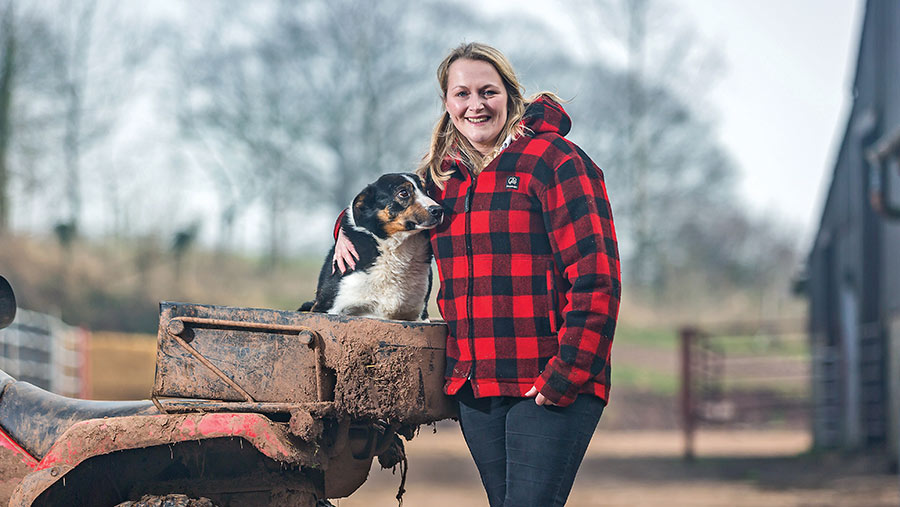Farmer Focus: Homebred lambs help rein in autumn expense
 © Richard Stanton
© Richard Stanton I can’t say I’ve ever witnessed such a strong trade as this season’s breeding ewe sales.
It’s great news for vendors, but not so fortunate if you are wanting to buy replacements. I assume this is largely due to this season’s sound lamb price. I also imagine a lot of farmers took advantage of the bounce back loan scheme and have splashed the cash.
Thankfully, we have 150 ewe lambs of our own that are fit for the tup this year and we also have our name on some blackies which are due to be delivered in the next week, so it may just mean they’re all that we buy in this time.
See also: How farmers are benefiting from contract rearing ewe lambs
That reminds me – I had better get on and bulk buy some packs of leggings, as they soon get trashed when handling these sheep.
We are impressed with the quality of the Scotch Mule lambs the blackies have produced this year, not to mention their maternal instincts, so we have great hopes to see what the Aberfield over these ewes will produce for us next year.
We’ve focused on setting up the pig enterprise and running and expanding the suckler herd, which are now pretty much where we want them to be. The time is right to focus our attention back on to the sheep flock, which is where our real passion lies.
As I write, we have 300 breeding gilts being delivered on site. This is the first batch of breeding gilts we have had on the farm as opposed to fattening pigs.
Usually we get just over 900 piglets delivered in one hit, whereas the gilts will arrive over a few weeks in batches of 300 at about 30kg (as opposed to 6-7kg piglets).
The benefits of this will be that our straw usage should be reduced (music to our ears when the current straw price is high), they will all go off farm as one batch on the same day, and, as hypocritical as it sounds, it is comforting to know they’re not going off for the chop.
Read more about Monmouthshire livestock farmer Livy Braid
